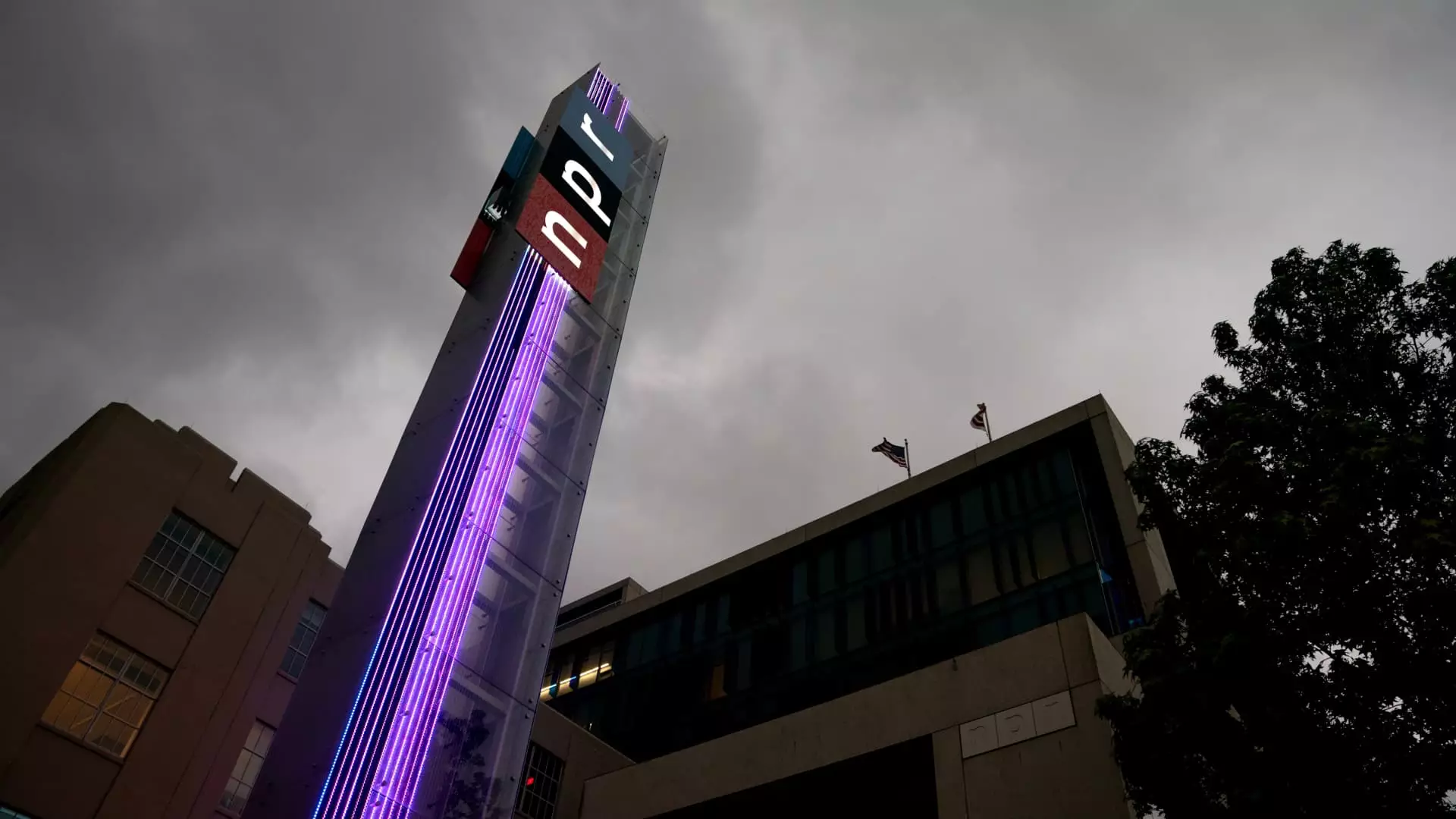In a striking confrontation between one of our nation’s leading public broadcasters and the highest officeholder in the land, National Public Radio (NPR) has taken a courageous step by suing President Donald Trump. The legal battle revolves around a May 1 executive order aimed at cutting off federal funding to NPR and similar entities, an action that not only raises alarms regarding the First Amendment rights but also threatens the very essence of independent journalism within a democratic society. This situation encapsulates a critical moment; an essential test of how far the government can ethically go in pursuing its agenda at the expense of the free press.
Trump’s executive order is painted as a necessary reform in the name of efficient use of taxpayer dollars. Yet, beneath this veneer lies a more insidious motive: a blatant attempt to stifle dissenting voices in media outlets whose coverage the Administration deems biased. The implications of such a move cannot be overstated; if successful, it undermines a cornerstone of American democracy—the right to free speech. This legal maneuver is not just a disagreement over funding; it’s a direct challenge to the claims of impartiality and fairness in reporting.
The Mechanics of Censorship
The lawsuit, which includes NPR and several of its affiliate stations, asserts that Trump’s order is a direct infringement of Congress’s authority. It starkly highlights the manner in which government censorship is being disguised under the guise of budgetary concerns. NPR’s extensive contributions to the American information landscape are undeniable: with hundreds of journalists serving a diverse array of local stations, the broadcaster has proved crucial in delivering balanced reporting to millions of listeners nationwide.
The CPB’s funding mechanism, which supports local stations that purchase NPR programming, constitutes a complex web of media that inherently nurtures local journalism, enabling public accountability and dialogue. Trump’s narrative, suggesting that public funding is archaic and detrimental to the perceived independence of the press, is an oversimplification that fails to recognize the innovative and communal role that public media plays in the fabric of American society. By framing his executive order as a necessary recalibration of financial priorities, Trump is engaging in an act of censorship that blatantly disregards the intent of Congress and the democratic principles that bind us.
Retaliation and its Consequences
This is not just a financial dispute; the lawsuit frames Trump’s actions as “textbook retaliation and viewpoint-based discrimination.” This assertion reveals an alarming trend toward authoritarianism, where dissent is actively punished rather than respected. In a democratic context, targeting media outlets for their coverage creates a dangerous precedent that can chill not only journalistic endeavors but also broader public discourse. The chilling effect described by NPR’s legal team resonates deeply in today’s climate, where any expression contrary to prevailing governmental narratives faces potential repercussions.
When considering the ramifications, one must question: what is the cost of silencing public broadcasting? The voices that NPR amplifies are those of marginalized communities, underrepresented issues, and stories that contribute to the greater national narrative. Limiting federal support in retaliation for perceived bias not only jeopardizes NPR’s operations but also fundamentally threatens the diversity of thought and opinion that a functioning democracy requires.
In Defense of Independent Journalism
It is crucial to recognize that advocacy for public media like NPR is not merely about preserving funding; it is about defending an essential institution critical to the health of our democracy. Independent journalism holds power to account and informs citizens in ways that are vital for civic engagement. The attempt to curb NPR’s funding thus serves as a microcosm of a larger crisis—a crisis rooted in a profound misunderstanding of the role that media plays in a democratic society.
As citizens, we have a sacred duty to defend institutions like NPR that embody the spirit of unfettered inquiry and the relentless pursuit of truth. The lawsuit against Trump is a clarion call for all of us to remain vigilant against government overreach that seeks to suppress freedom of expression. In a time when trust in the media is waning, supporting public broadcasting can foster renewed faith in journalism as a pillar of democracy, rather than as a pawn in a political game. As such, we must collectively advocate for a future where balanced and unbiased reporting prevails, and threats to independent journalism are met with robust resistance.


Leave a Reply